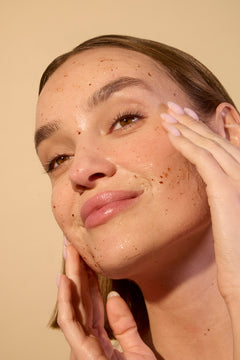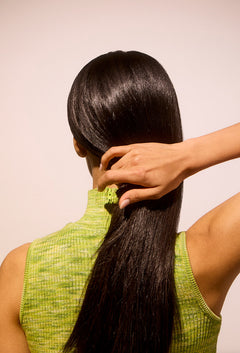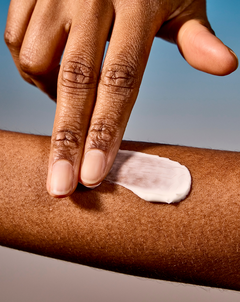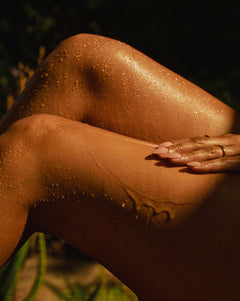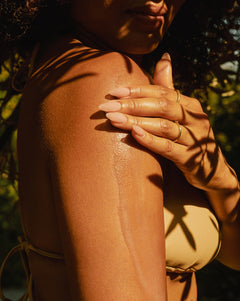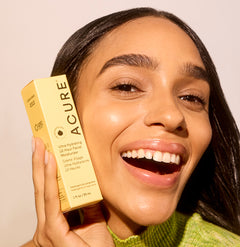These tiny organisms play a crucial role in keeping your skin healthy, protecting against harmful invaders, and even supporting your immune system.
Your skin is home to a vast and complex network of bacteria, fungi, and other microorganisms known as the skin microbiome. These tiny organisms play a crucial role in keeping your skin healthy, protecting against harmful invaders, and even supporting your immune system.
What is Acne?
Acne is a common skin condition that affects people of all ages, not just teenagers. It occurs when hair follicles become clogged with oil (sebum), dead skin cells, and bacteria. The result? Breakouts that can range from mild to severe. While acne is not a serious medical condition, it can significantly impact self-confidence and emotional well-being.
Acne Develops
Acne begins when the sebaceous glands in the skin produce too much oil. This excess oil, combined with dead skin cells, can clog pores and create a breeding ground for bacteria. As a result, inflammation occurs, leading to the formation of acne lesions.
Types of Acne
Whiteheads: Clogged pores that remain closed under the skin.
Blackheads: Clogged pores that open and darken due to oxidation.
Papules: Small, red, inflamed bumps without pus.
Pustules: Similar to papules but contain pus.
Nodules: Large, painful, deep-seated lumps beneath the skin.
Cysts: Severe, pus-filled lumps that can lead to scarring.
Acne vs. Cold Sores
Cold sores are caused by the herpes simplex virus and typically appear as fluid-filled blisters around the mouth. Unlike acne, they are highly contagious and often triggered by stress or illness.
Common Acne Causes That Trigger Breakouts
Understanding what causes acne can help in its prevention and treatment. Several factors contribute to acne:
Clogged Pores
Excess sebum and dead skin cells block the hair follicles, leading to breakouts.
Hormonal Acne
Hormonal fluctuations during puberty, menstruation, pregnancy, and conditions like PCOS can increase oil production.
Genetics
A family history of acne can make individuals more prone to breakouts.
Medication Interaction
Certain medications, such as steroids and birth control pills, can trigger acne.
Diet and Nutrition
High-glycemic foods, dairy, and excessive sugar consumption may exacerbate acne.
Environmental Factors
Pollution, humidity, and excessive face touching can contribute to acne formation.
Acne Treatment To Bring Back Glowing Skin
Managing acne requires a combination of treatments targeting current breakouts, preventing new ones, and minimizing scars.
Medications
Topical Treatments: Adapalene, Tretinoin, Benzoyl Peroxide, and Salicylic Acid help unclog pores and reduce inflammation.
Oral Medications: Antibiotics, Birth Control Pills, and Isotretinoin treat severe cases.
Natural Remedies
Tea Tree Oil: Reduces bacteria and inflammation.
Aloe Vera: Soothes and hydrates irritated skin.
Honey and Cinnamon Masks: Possess antibacterial properties to combat acne.
Professional Skincare Treatments
Chemical Peels & Laser Therapy: Help reduce acne scars and prevent new breakouts.
Microneedling & Extraction Procedures: Improve skin texture and remove deep-seated impurities.
How To Prevent and Treat Acne Scars
Acne scars can be stubborn, but they are treatable with the right approach.
Types of Acne Scars
Atrophic Scars: Depressed scars due to collagen loss.
Hypertrophic & Keloid Scars: Raised scars from excessive collagen production.
Preventing Acne Scars
Avoid picking or squeezing pimples.
Treat acne early to prevent severe breakouts.
Acne Scar Treatment
Soft Tissue Fillers & Steroid Injections: Help smooth out depressed scars.
Laser Resurfacing & Chemical Peels: Improve skin texture and tone.
Skin Needling & Botox: Enhance collagen production and reduce scarring.
Do Acne Scars Fade Over Time?
With proper treatment and skincare, many acne scars fade significantly. However, deep scars may require professional treatments for noticeable improvement.
Maintain Beautiful Skin With Acne Prevention
Skincare Routine for Acne-Prone Skin
Cleanse: Use a gentle acne face wash twice daily.
Tone: Remove excess oil and impurities.
Moisturize: Use non-comedogenic, hydrating products.
Apply Sunscreen: Protect skin from UV damage.
- Diet and Lifestyle Changes
- Maintain a balanced diet rich in antioxidants.
- Drink plenty of water to stay hydrated.
- Reduce stress through meditation and exercise.
- Be Careful with Skincare Products
- Avoid harsh exfoliants that can irritate the skin.
- Use acne creams with targeted ingredients like salicylic acid and benzoyl peroxide.
- Don't Touch Your Face
- Frequent face-touching transfers bacteria and oil, leading to more breakouts.
Acne Myths Debunked
Several misconceptions about acne persist. Let’s clear them up:
Dirt Causes Acne: Acne is caused by oil and bacteria, not dirt.
Only Teenagers Get Acne: Adults can suffer from acne too.
Chocolate and Greasy Food Cause Acne: No direct link has been proven, though diet can impact skin health.
Popping Pimples is OK: This can lead to scarring and further breakouts.
Acne Goes Away on Its Own: While mild cases may improve, persistent acne requires treatment.
Let Acure Help Relieve Acne Worries
Acne doesn’t have to be a lifelong struggle. With the right skincare routine and treatments, you can achieve clear, radiant skin. Explore our range of products to find the best products for your skin.
